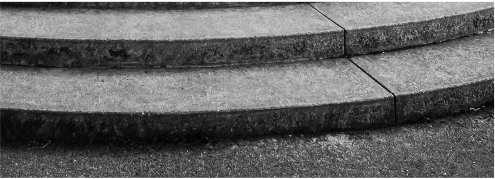CO-OWNERSHIP
A co-ownership occurs when one or more people own an asset together. It can be siblings, an unmarried couple or spouses, or any other group of individuals. A large part of the population therefore has one or more co-ownership relationships.
It is often the co-ownership of a house, apartment or business, but a co-ownership can also be of a car, boat or other consumer good.
Many people do not think about the importance of a legal co-ownership and what it can mean if one disagrees in the future:
In many cases, the most difficult situations arise if one party no longer wants to own the asset.





Co-ownership Contract and co-ownership agreement
Therefore, it is always a very good idea to decide in advance on conditions of how to regulate the co-ownership relationship and how to handle it, if you no longer want to own the asset with the other(s) – or as a couple if you split up. You do this by making a co-ownership contract or a co-ownership agreement.
In all, it is a document describing how you handle the conditions that are relevant during the time you own the asset together, and not least the termination of the co-ownership relationship, so that there is no doubt at any time – especially if you disagree in the future.
Thus, a co-ownership contract or co-ownership agreement thus regulates, for example, how expenditure is to be shared between the owners on an ongoing basis and what should happen if a party wants to sell its share.
Once the contract is drawn up, it is possible to register it if it relates to an asset that is publicly registered, as is the case with a house, apartment or car.
However, registration is not a requirement of validity.
A co-ownership contract or co-ownership agreement can also regulate the right of use, i.e. the right of the individual owner, and perhaps his family or friends, to use, for example, a holiday home.
In addition to when, how much and who can use it, it may also be relevant to clarify whether the right of use should have an impact on the distribution of expenditure.
Has one owner deposited a larger amount when purchasing the asset?
An important part of the agreement concerns how to secure and handle it if there is a difference in how much each owner has paid in cash deposits when acquiring the asset.

Cessation of co-ownership
If you have not taken a position on what should apply, where a party will withdraw from the co-ownership and you cannot agree to that situation, it will go to Bailiff's Court or Probate Court to have the co-ownership dissolved. It can be both a long and expensive process.
What if one of the owners dies?
What should happen to the co-ownership in the event of an owner's death should be regulated by each owner's will. It is always our recommendation that you get advice from a attorney who can find out exactly what you need, and what your will should secure – and not least to whom.
At the same time, we recommend that the will be formulated by a attorney so that there is no doubt when testator has passed away.
Ask an attorney for advice
There are many who try to complete a co-ownership or co-ownership agreement themselves. The challenge here is that the agreement will only work as intended if it actually has the content on which you agree. If you later disagree and need to apply the contract, the meaning of your intentions are determined on a legal interpretation basis, thus determine what applies.
In order to ensure that you do not end up with unnecessary disputes and costs, it is important that the agreement is formulated correctly and clearly. Therefore, we always recommend that you get a attorney to advise each of you, and to write the agreement.


